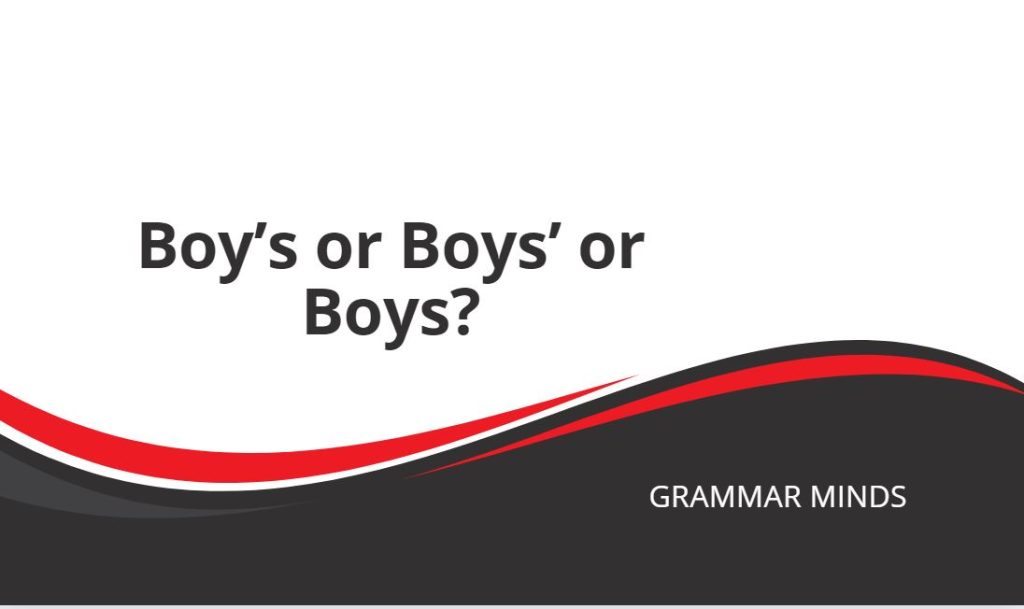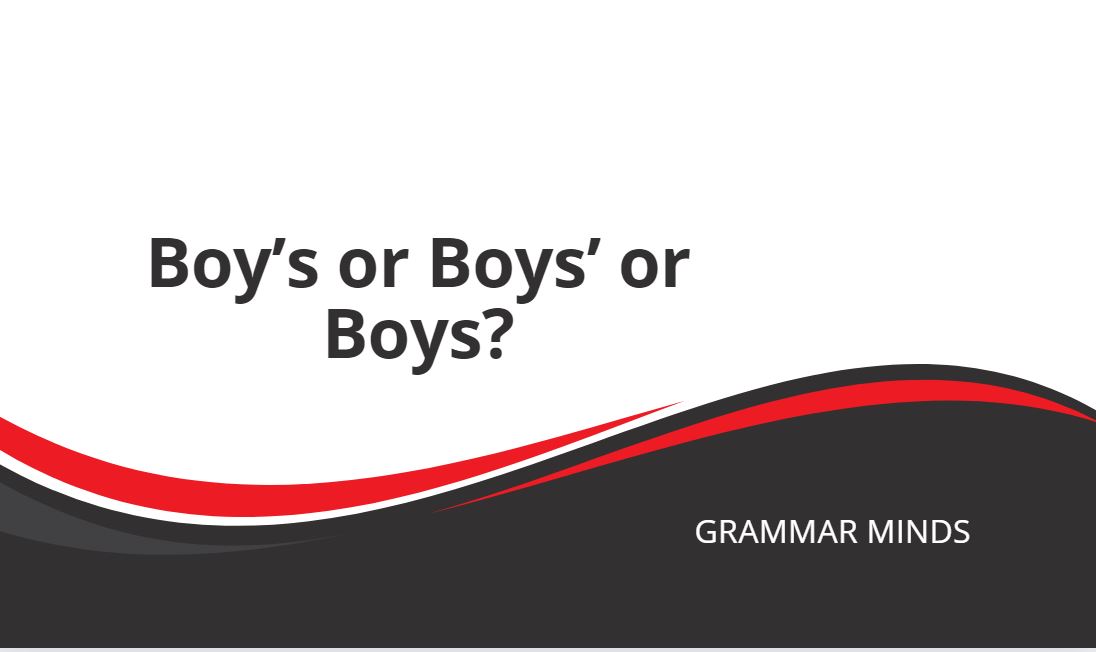The word boy’s is the singular possessive form of boy. E.g., “The boy’s bike is new.” Furthermore, boys’ is the plural possessive form. E.g., “The boys’ soccer team won the match.” Also, boys is the standard plural of boy. E.g., “The three boys played in the park.”

The following chart provides a summary of the different forms of boy.
| Form | Example Sentence |
| Singular | Boy |
| Plural | Boys |
| Singular possessive | Boy’s |
| Plural possessive | Boys’ |
You can make the plural form by adding an “s” to boy.
Furthermore, you can make the singular possessive by inserting an apostrophe between the “y” and “s.” In comparison, the plural possessive is made by adding an apostrophe to the end of boys.
In the following examples, you can see the different forms of the word boy in context:
Singular: I have a ten-year-old boy named Jack.
Plural: The boys said they would meet at the playground.
Singular possessive: I am organizing a boy’s birthday party this weekend.
Plural possessive: The boys’ locker room was newly renovated.
The difference between the singular and plural possessives is that we are talking about one boy in the singular possessive sentence. However, in the plural possessive sentence, we are talking about a place, the locker room, that belongs to multiple boys.
Now you have learned the basics of how to use the possessive forms of boy. However, you should keep reading so you can learn more about each form and how to use them.
Boy’s
The word boy’s is the singular possessive of the word boy. Therefore, you use it when you want to say that something belongs to one boy.
You can mention things that are a physical part of a boy or part of his character.
- The boy’s hat was red and worn backwards.
- Our boy’s enthusiasm for sports is unmatched.
Boys’
The word boys’ is the plural possessive of boy. Therefore, you use it when you want to indicate that something belongs to multiple boys.
The plural possessive can refer to physical objects owned by boys, as well as things like results or opinions.
- The boys’ performances in the play were outstanding.
- Someone took the boys’ jackets from the coat rack.
Furthermore, the term boys’ can also refer to spaces explicitly designed for boys, as well as periods of time that boys spend without girls.
- Our son goes to a boys’ school.
- They are planning a boys’ trip to the mountains.
Boys
The term boys is the standard plural of the word boy. Therefore, you use it when you want to talk about more than one boy in non-possessive sentences.
You can use the plural version to mention a specific number of boys.
- All five boys joined the soccer team.
Also, you can use it to refer to all boys in a general sense.
- Boys generally enjoy playing video games.







